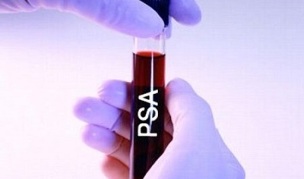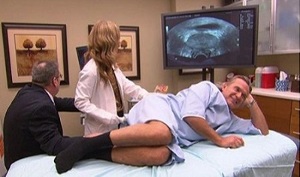Acute prostatitis is an inflammatory process in the prostate gland from which no human being is protected. According to experts, this disease is detected in half of men of reproductive age. Acute prostatitis is an infectious lesion of the prostate gland accompanied by edema and the formation of purulent foci in the organ. Some symptoms appear immediately, while others are noticed only during diagnosis. What are the causes of the disease, how does it manifest itself and what treatment measures are taken?
Why does it occur?
The cause of the acute form in men lies in the infection of organs with gram-negative (E. coli, Proteus, Klebsiela, and others) and gram-positive (streptococcus, staphylococcus) bacteria.
Acute bacterial prostatitis often results from urogenital infections that spread through unprotected sex, such as:
- Chlamydia.
- Candidiasis.
- Gonorrhea.
- Trichomoniasis and a few others.
In addition, urethritis often causes acute prostatitis: pathogenic bacteria enter through the prostate ducts that open in the wall of the urethra. Infection is much less common when men develop acute cystitis and bladder bacteria enter the prostate. There is also a hematogenous method of infection in which pathogens spread through the bloodstream throughout the body.
There are others for these reasons:
- Disorders of intimate life (interruption and short duration of intercourse, erectile dysfunction).
- Test hypothermia.
- Inactivity due to sedentary work or lifestyle.
- Pathology of the rectum.
- Consequences of surgical intervention on urogenital organs.
- Respiratory viral infections.
- Stagnant phenomena that develop in the vessels of the pelvis and often lead to damaged drainage of the prostate ducts.
- Difficult emptying, varicose veins.
The causes are different, but they all contribute to the development of acute prostatitis.
How does the pathology manifest itself?
Symptoms usually depend on the stage of inflammation.
The following symptoms of acute prostatitis are observed in the catarrhal stage:
- Severity and painful symptoms in the genital area.
- Painful and frequent emptying of the bladder, which bothers men especially at night.
- A slight rise in temperature is possible.
- No signs of poisoning.
Tactile changes may not be noticeable or a slight enlargement of the prostate may occur. In men, this test causes less pain. Symptoms of acute prostatitis are also detected by tests. The secretion of the gland is found to be increased leukocyte levels, the presence of mucus and pus fibers, and leukocytes also appear in the urine. Timely treatment of catarrhal type prostatitis allows a person to recover in a week and a half.

Acute follicular prostatitis has more intense symptoms. Men are worried about the pain in the perineum that is given to the sacral region, the anus. At this stage, the patient experiences painful urine. Pain also leads to difficulty passing stools. The temperature rises to 37, 5-38 ° C.
Certain symptoms are detected and diagnosed. During probing, the doctor finds that the gland is enlarged and thickened until it becomes asymmetrical, causing sharp pain when pressed. The number of purulent fibers and leukocytes in the urine increases, and they are deposited in the urine as sediment. If proper treatment is prescribed, the prognosis is favorable.
If left untreated, the next stage develops - acute parenchymal prostatitis. The symptoms of this form of the disease in men are as follows:
- The temperature rises to 39-40 ° С.
- The patient trembles.
- There are signs of general weakness.
- Anorexia but constant thirst.
- At first, urination becomes much more frequent, more difficult, and stops after a while.
- The patient suffers from constipation and bloating.
Symptoms of acute prostatitis are more pronounced, such as pain radiating to the rectal area, becoming pulsating. Sometimes the symptoms are accompanied by edema of the pararectal tissues, in which case the rectal research method is not applicable. A mixture of pus is observed in the urine. Acute disease should be treated urgently, otherwise an abscess will form. In the event that a weakly virulent pathogen enters the body with virtually no symptoms, the patient is said to have subacute prostatitis.
How to treat?
Are men interested in the treatment of acute prostatitis? According to experts, the treatment of acute prostatitis is primarily based on eliminating the causes of the disease. As a general rule, antimicrobials are used. Antibiotics are selected individually in each case based on the diagnosis made. Taking antibiotics takes until complete recovery. Such treatment, according to doctors, makes it possible to stop the acute processes that lead to the active reproduction of pathogenic microorganisms in the tissues of an infected human organ. Treatment of acute prostatitis should be comprehensive.
In addition to antibiotics, other drugs are used:
- Immunostimulatory drugs.
- Devices to improve blood circulation.
- Non-steroidal anti-inflammatory drugs.
- Vitamin complexes.
- Herbal medicine.
- Sedatives and antidepressants.
Analgesics and antispasmodics can relieve men of unpleasant painful feelings. Rectal suppositories have a similar effect for rectal administration with an anesthetic. Suppositories usually have antibacterial properties, gently directly to the cause of the disease - the pathogen. At home, rectal suppositories with sea buckthorn oil, propolis, honey, and enemas with warm herbal decoctions will help you cope with the pain.
The use of bioregulatory peptides is prescribed to normalize the metabolic processes of the prostate gland and to accelerate the regeneration of damaged tissues. Treatment also includes immunostimulants and modulators, non-steroidal anti-inflammatory drugs (tablets or injections), injectable solutions and vitamin complexes.
If antibiotics or non-steroidal anti-inflammatory drugs are unable to cope with the infection, treatment will include hormones.

After the main symptoms of acute prostatitis have been eliminated, treatment is supplemented by physiotherapy:
- Electrophoresis.
- Prostate massage.
- Microwave and some more.
Patient studies have shown that the treatment of prostatitis with phytopreparations is a good effect.
These medications are recommended for home use for prophylactic purposes. Herbal tablets can replace home-made herbal decoctions and infusions.
Symptoms of acute type prostatitis perfectly remove decoctions from tansy flowers, hop cones and celandine. Field horseradish, calamus root, chamomile are effective.
In acute prostatitis, due to the significant delay in the outflow of urine, no catheter is inserted, the treatment is performed by cutting out the bladder wall - cystotomy.
If a prostate abscess is diagnosed, treatment is performed surgically until the abscess opens and the cavity is emptied. In acute form, bed rest can be seen, as well as the denial of sexual intercourse, diet meals.
As physicians' reviews show, timely identification of the causes of the acute form of the disease and a competently conducted treatment process can cure the disease in a relatively short period of time.
























